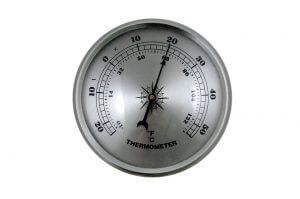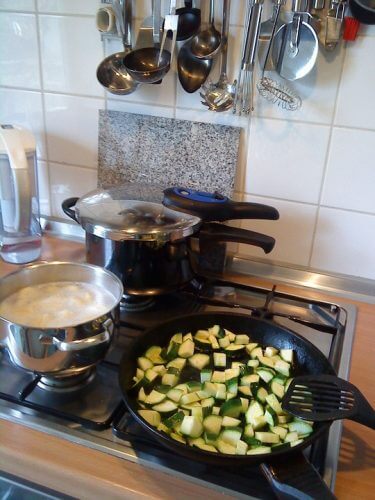
A pressure cooker can be defined as a metal pot which has a tight fitting lid that completely seals. When a liquid inside the pot of a pressure cooker heats up, steam gets trapped, and this creates pressure.
The result is usually higher cooking temperatures as well as faster cooking. Pressure cookers have numerous advantages that consumers in the market can significantly benefit from. They are fast and easy to use.
Below are some differences between electric pressure cookers and stove-top pressure cookers:
Stove-top pressure cookers
A stovetop pressure cooker is considered to be a more complex version of a pot. It has a lid that is specially designed to keep the steam inside thus preventing anyone from opening it on high pressure. The stovetop pressure cooker is equipped with a valve that releases steam quickly. It can have 1-3 pressure settings depending on the brand.
Advantages
 Stovetop pressure cookers vary depending on the type of brand. However, they generally have a number of advantages as follows:
Stovetop pressure cookers vary depending on the type of brand. However, they generally have a number of advantages as follows:
• They are sturdier in construction compared to electric pressure cookers.
• They are more practical to use in comparison to their electrical counterparts. The main reason being they just have a pot and a lid, these are few parts that are easy to handle.
• Stovetop pressure cookers have more control than electric pressure cookers.
• Stovetop pressure cookers force the owner to pay close attention throughout the cooking process because of the temperature and pressure control required of them. This ensures that food is not burnt or overcooked.
• They maintain a high operating pressure compared to electric pressure cookers and can successfully maintain it for longer periods.
• They cool down faster compared to their electric counterparts.
• Stovetop pressure cookers are more versatile than electric pressure cookers as they can also function as a standard pan if need be.
Disadvantages
There are several disadvantages associated with stovetop pressure cookers, the notable ones are listed below:
• It requires the user to stay throughout the cooking process. This wastes valuable time that could have been spent handling other commitments.
• The places where stovetop pressure cookers can be used tend to be quite limited in number.
• Stovetop pressure cookers use a lot of energy in comparison to their electric counterparts.
Electric pressure cookers
An electric pressure cooker is a type of pressure cooker that can be plugged into an electric source to supply it with the power it needs to operate. They are designed to be easy to use as it has a programming that is capable of making appropriate pressure adjustments.
Advantages
There is an array of advantages associated with the use of electric pressure cookers, some of them are:
• This type of pressure cooker is quite convenient. An individual just needs to key in the desired settings, and it can afterward operate by itself.
• Electric pressure cookers have several settings that allow the use to perform numerous functions with the same appliance. Some make yogurt while others can even cook rice.
• They have useful sensors that promote safety when cooking. For instance, there is a sensor that is capable of detecting if the lid is completely and firmly sealed.
• Some brands of electric pressure cookers have slow-cooking modes that are quite useful.
Disadvantages
The limitations associated with the use of electric pressure cookers are as follows:
• They tend to be flimsier compared to stovetop pressure cookers. This is as a result of their design differences.
• They are larger in size in comparison to their stovetop counterparts. This means that they consume more space than a stovetop pressure cooker of a similar bowl-size. Similarly, it is almost impossible to get an electric pressure cooker with a large sized bowl. This fact eliminates the possibility of cooking large recipes.
• They are relatively expensive to purchase due to their complex designs.
• There is a high probability of a malfunction with an electric pressure cooker then it is with a stovetop pressure cooker.
• Electric pressure cookers tend to have a maximum pressure limit that is much lower in comparison to their stovetop counterparts.
Conclusion
The above information about electric pressure cooker vs. stove-top pressure cooker is a clear indication that both have their advantages and disadvantages. This means that the type of pressure cooker that an individual ends up selecting is purely a matter of personal needs as well as preferences.

Leave a Reply